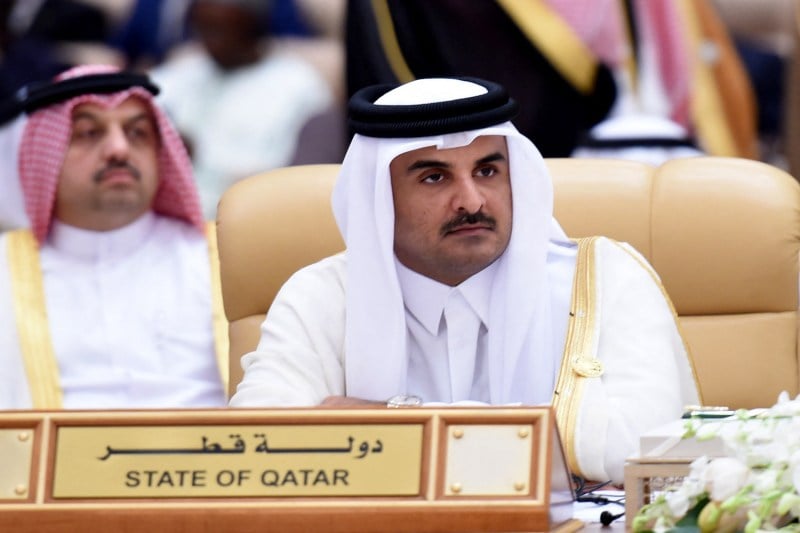In a strongly worded statement, Qatar has rejected recent allegations that it paid media outlets to discredit Egypt’s role in ongoing mediation efforts between Israel and Hamas. The Qatari government firmly denied claims suggesting that it attempted to sway international media narratives to diminish Cairo’s influence in the hostage negotiations.
The accusations surfaced amid heightened diplomatic efforts to reach a ceasefire in Gaza and secure the release of hostages held by Hamas since the conflict escalated in October 2023.
Qatar Calls Allegations Baseless and Harmful
On Monday, Qatari Foreign Ministry spokesperson Dr. Majed bin Mohammed Al Ansari addressed the issue during a press briefing, describing the media reports as completely false and without evidence. He stressed that Qatar remains committed to peace in the region and that such rumors only serve to distract from the urgent goal of ending the violence in Gaza.
“These reports are not only baseless but dangerous,” Dr. Al Ansari said. “They threaten to undermine critical diplomatic work being carried out in close coordination with our Egyptian and American partners.”

He also urged international media outlets and commentators to verify their sources and focus on the shared humanitarian objective: ending the war and ensuring the safe release of hostages.
Egypt Responds with Surprise and Frustration
In response to the media reports, an unnamed high-ranking Egyptian official expressed deep concern about what he called “intentional misinformation” aimed at tarnishing Egypt’s reputation as a key regional mediator. The official said that some parties seem more focused on political maneuvering than on reaching a practical resolution to the crisis.
“Instead of working to end the bloodshed, some are trying to escape their responsibilities by attacking those working tirelessly to restore peace,” the Egyptian source stated. “Egypt will not be drawn into media games and remains focused on facilitating an agreement acceptable to all parties.”
Egypt has long played a central role in brokering ceasefires between Israel and Palestinian factions. Its geographic proximity and longstanding ties with multiple actors in the region have made it an indispensable player in past negotiations.
Longstanding Qatar-Egypt Mediation Partnership
Qatar and Egypt have, despite past political differences, cooperated closely in recent years to mediate delicate situations in Gaza. Both countries were instrumental in previous ceasefire agreements and humanitarian efforts.
While Egypt has traditionally taken the lead in facilitating direct negotiations between Israel and Palestinian groups, Qatar has provided diplomatic channels and financial support, especially with regards to humanitarian aid for Gaza. Together with the United States, the two countries form the backbone of current efforts to stop hostilities and release hostages.
Despite recent tensions, officials from both sides have publicly emphasized the importance of unity and collaboration in navigating such a complex and volatile crisis.
Israeli Criticism Fuels Regional Tensions
The diplomatic tension was further complicated by Israeli Prime Minister Benjamin Netanyahu’s recent public criticism of Qatar. Netanyahu questioned Qatar’s role and transparency in the mediation efforts, prompting a sharp response from Qatari officials who called his comments “unhelpful” and “politically motivated.”
Qatar accused the Israeli leadership of trying to shift blame amid growing frustration over the slow progress of negotiations and the worsening humanitarian situation in Gaza. Qatari diplomats noted that the comments could derail sensitive discussions and reduce the chances of reaching a peaceful resolution.
“These kinds of remarks only complicate things further,” said a Qatari official familiar with the negotiations. “When parties begin attacking the mediators, it becomes much harder to maintain trust and balance in the talks.”
Ongoing Hostage Crisis and Humanitarian Concerns
Since the outbreak of conflict in October, Hamas has taken numerous hostages, including Israeli civilians and foreign nationals. Efforts to secure their release have been complicated by ongoing military actions, public pressure, and deep mistrust between the negotiating parties.
Qatar, which has maintained communication channels with Hamas, has played a key role in facilitating indirect talks. Egyptian mediators have worked to create ceasefire proposals and coordinate prisoner exchanges. However, despite months of talks, a comprehensive agreement remains elusive.
Meanwhile, the humanitarian situation in Gaza continues to worsen, with international agencies warning of a looming crisis as food, medical supplies, and basic infrastructure deteriorate.
Media Accusations Seen as a Distraction
Analysts and diplomats close to the talks believe the allegations against Qatar are part of a wider campaign to discredit one of the few actors capable of maintaining open dialogue with all parties. Some have suggested that these narratives are intentionally designed to weaken the collective mediation process.
“Accusing Qatar of undermining Egypt doesn’t help anyone,” said a regional analyst. “Both countries are essential to the process. Turning them against each other only benefits those who don’t want peace.”
Others argue that media leaks and hostile rhetoric could be tactical distractions to delay making difficult political decisions or to avoid unpopular compromises.
Final Thoughts
The denial by Qatar comes at a critical time, when every diplomatic effort is needed to de-escalate tensions and prevent further civilian casualties. The Middle East remains a highly complex region where misinformation can spread quickly and have dangerous consequences.
What is clear from both Qatari and Egyptian statements is that both countries remain committed to ending the war, facilitating hostage releases, and ensuring humanitarian aid reaches those in need.
As international eyes remain fixed on the negotiations, the hope is that dialogue and cooperation—rather than blame and division—will lead the way toward a more peaceful resolution.
Qatar PM Warns: Iran Nuclear Attack Could Poison Gulf Water Supply



